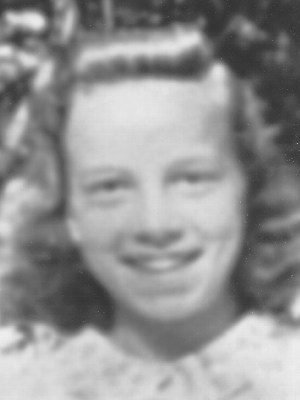
Elizabeth, the middle daughter of Hermann and Wally (Blumenthal) Lintzel, grew up in Berlin, Germany. Berlin was a highly sophisticated, cosmopolitan city. Jews were well integrated into Berlin's society and culture, and mixed marriages were not exceptional. Elizabeth's mother, who had grown up in a religious Jewish home, married her father, a non-Jew, after meeting him at a resort. Her parents raised Elizabeth, her brother and sister, without any religion, but Elizabeth was very close to her Jewish grandmother. The family celebrated Jewish holidays at the grandmother's house. Elizabeth's father was a prominent engineer with a major German company, and he provided a comfortable life for his family. Elizabeth had many friends, and she loved to go bike riding, camping, sledding and skiing with her family.
All this began to change after Nazi Germany passed its "Nuremberg Laws," in 1935. Elizabeth was now considered as a "half-Jew." Half-Jews were supposed to have most of the rights of regular German citizens, but were limited by various regulations. Elizabeth could no longer play with her mostly non-Jewish friends. She was constantly harassed with anti-Jewish propaganda, and she felt that something was wrong with her because of her Jewish heritage. She was taunted and shunned.
In 1942, fifteen-year old Elizabeth was no longer permitted to attend school because, she was a half-Jew. She was required to report for hard labor. Her older brother was sent to work in the salt mines. Half-Jews were extremely vulnerable at all times. If their behavior was interpreted as being "Jewish," they could be reclassified as full Jews. That would mean deportation and death. Elizabeth's Jewish grandmother and her two young aunts were deported to death camps. Her mother, because of her status as the wife of a non-Jew and mother of half-Germans, was protected. She died, however, of poor health, in 1944.
Towards the end of the war, the bombings and food shortages became intolerable. Elizabeth was often threatened with deportation, and constantly feared that she would be denounced as a Jew and murdered. When Russian troops occupied Berlin in April 1945, seventeen year-old Elizabeth no longer feared for her life.

